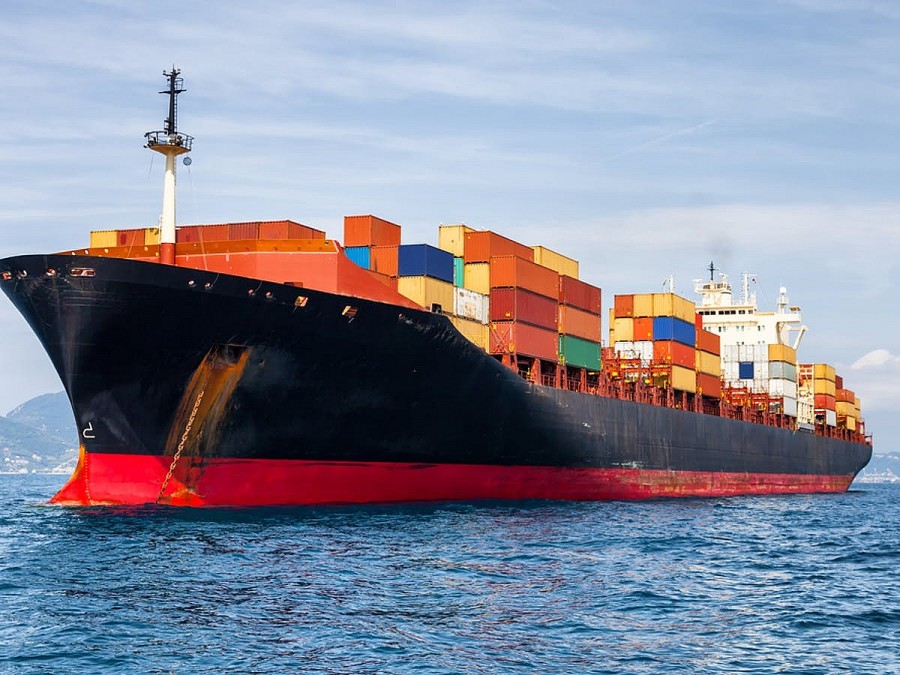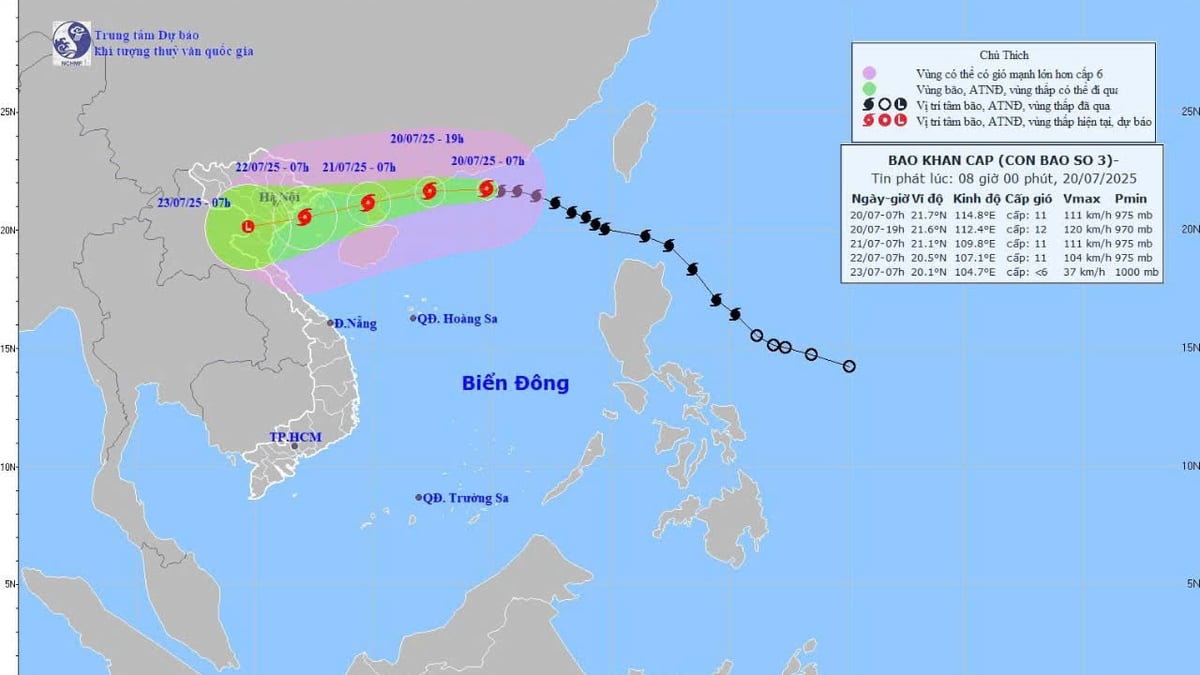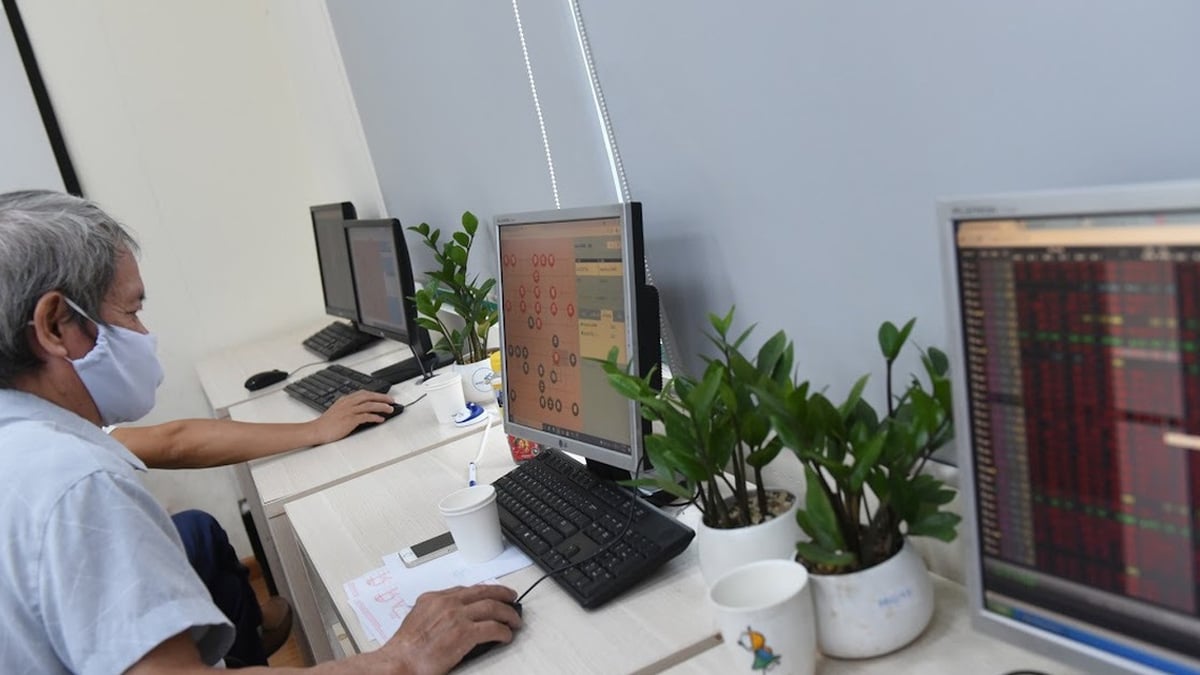According to information from a number of businesses, from January 2024, a series of shipping lines announced an increase in shipping rates to the US, EU and other countries.
 |
| Increasing sea freight rates, export enterprises face double difficulties |
Specifically, a series of major shipping lines such as Yang Ming Line, One, Evergreen Line, HMM, Maersk... have sent notices that they will collect additional surcharges due to having to change the shipping routes of Asia - Europe, avoiding going through the Suez Canal and the Red Sea area.
Starting from January 2024, the fares to the US, Canada and EU will increase significantly compared to December 2023. Accordingly, the West Coast (LA) will increase by 800 USD - 1,250 USD, depending on the route. Specifically, in December 2023, the fare was at 1,850 USD, but in January 2024 it increased to 2,873-2,950 USD.
The East Coast (NY) recorded a larger increase of $1,400 to $1,750, depending on the route. Specifically, in December 2023, the price was at $2,600, increasing to $4,100-4,500 for January 2024.
Freight to the EU alone recorded a sharp increase compared to December 2023. Specifically, freight to Hamburg, which cost 1,200-1,300 USD in December, increased to 4,350-4,450 USD in January 2024, more than doubling.
The reason, according to businesses, is that 80% of goods going to the East Coast of the US, Canada and the EU go through the Suez Canal. Due to Israel/Hamas tensions, the Houthi rebel group (Yemen) attacked ships entering the Red Sea to pass through this canal.
Last December, Maersk, MSC and CMA vessels were all attacked. This forced the lines to detour around the Cape of Good Hope (South Africa), adding 7-10 days to the journey. This resulted in longer ship turnaround times and higher transportation costs.
This could be a new challenge for seafood businesses in 2024. If tensions in the Red Sea continue or escalate, it could lead to increased transportation costs and increased input prices for aquaculture and seafood processing, affecting the competitiveness and profits of seafood businesses.
A representative of a business complained that nearly 20% of the goods exported to the EU market under FOB contracts this time have been temporarily suspended by partners due to high freight rates. They have also not announced when they will receive the goods. The fact that the goods have not been exported has caused the business to have capital stagnation, affecting operations.
Meanwhile, according to Mr. Tran Quoc Manh - Chairman of the Board of Directors of Saigon Production and Trade Development Joint Stock Company (Sadaco), the company has a number of orders that must be transported through the Red Sea area, so it has recently received notice of increased freight rates from a number of shipping lines. The increase is from 200 - 500 USD/40-foot container with the application period from January 1, 2024.
However, what worries this business is not the shipping rates on this route, but the possibility that other routes will also increase in price due to the prolonged congestion. In the context of orders just recovering a little, the situation of increasing shipping rates is causing the business to face many difficulties.
As a company specializing in exporting shrimp to many markets around the world , Sao Ta Food Joint Stock Company is very fortunate to have few shipments exported to the EU and US markets at this time. The company only focuses on the Japanese market, so the above difficulties have not had much impact for the time being. However, Mr. Ho Quoc Luc - Chairman of the Board of Directors of Sao Ta Food Joint Stock Company - commented that the situation in the Red Sea has calmed down in recent days, but shipping rates are still increasing. The shipping line excused that due to the "delay", even though the risk has passed, it will probably take a month for the rates to stabilize again.
Regarding this issue, on December 28, 2023, the Import-Export Department ( Ministry of Industry and Trade ) issued Official Dispatch No. 1116/XNK-TLH on limiting the impact of the situation arising in the Red Sea area.
The Import-Export Department recommends that industry associations and associations in the logistics sector increase monitoring and regularly update the situation to businesses in the industry to grasp information to proactively plan production and import and export of goods, avoiding congestion and other adverse impacts.
The Import-Export Department recommends that import-export enterprises closely monitor the situation, proactively develop appropriate plans, and discuss with partners so that, if necessary, they can extend the time for packing and receiving goods.
Businesses are looking to diversify their supply sources to limit the impact on their supply chains. Learn about rail transport for different delivery options.
When signing and negotiating commercial contracts and transportation contracts, businesses should include provisions on compensation and exemption from liability in emergency situations. It is necessary to purchase adequate insurance to prevent risks and losses when goods have to extend the transportation time or encounter problems when traveling through this route.
Source link




































































































Comment (0)